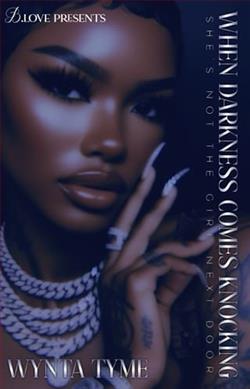Page 76 of Beauty and the Beach
As soon as I open her door, the light from the hallway illuminates her, and I see that tonight is different. She’s not asleep anymore, or even half-asleep; she’s fully awake, sitting up, curled in on herself. Her head is hidden, buried in her knees, and her arms are wrapped around her legs. Even in the weak light I can tell that she’s holding herself too tightly, a woman clutching a life raft.
The sound of her cries is one of the worst things I’ve ever heard. They’re sobs pulled not from her throat but from her soul.
I sit on the edge of the bed, my hands hovering awkwardly in silent debate until I finally rest one on her shoulder.
“Holland,” I say. I can hear my uncertainty; sometimes people need to fall apart in private, with no one watching. I don’t know what she wants right now. “Holland?”
When she speaks, I don’t understand. The words are muffled, spoken into her knees and blurred by her tears.
“I can’t hear you,” I say.
Her shoulders continue to shake as she lifts her head, and I barely stop myself from rearing back.
Devastation. Bottomless, unseeing eyes.
“Trev is dead,” she says—broken, gasping, desperate.
It’s a blow to the chest, physically painful, and my heart falters and then plummets. I swallow and answer her anyway. “Yes,” I say, my voice quiet. “Trev is dead.”
She fights for more air, a tight, horrible sound. “I couldn’t stop the car.”
“I know,” I say with a slow nod.
“I tried—I tried?—”
“I know.” I tighten my grip on her shaking shoulder. “I know you tried.”
She’s close to hyperventilating now. “I couldn’t—I couldn’t—” She breaks off, and I scoot closer to her.
“You couldn’t,” I say. “You couldn’t have done anything. If I had been driving, I wouldn’t have been able to do anything either. We couldn’t have changed anything, Holl. We couldn’t change the road. We couldn’t change the car. We couldn’t change the river.” I swallow as a tangled knot rises in my throat. “Rivers are always going to flow. Sometimes they’re icy. We just swim anyway.”
She finally releases her death grip on her knees, swiping at her eyes. “I’m tired of swimming,” she says. Her entirebody is still shuddering with her cries, but she sounds frustrated now too. “I’mtired.”
I lean forward and wrap my arms around her, pulling her close. “I know,” I say heavily.
She doesn’t resist; she melts into me, sobbing, hot tears on my bare chest—sorrow past words, jagged and sharp, grief like a knife.
And I wonder: Is this the first time she’s cried about Trev? Surely not. My guess is that this is what she talked about in her therapy session, but was it the first time she’d ever talked about the crash in any detail?
Something deep in my soul whispers that these tears have been a long time coming—that I’m witnessing the destruction of a dam she built around her broken heart years ago.
It’s probably twenty minutes before her tears subside and her body stops shaking in my arms; I figure she’s fallen asleep, until she shifts and a question filters toward me.
“Do I really snore?” she says in a tired little voice, slow and drowsy.
I smile gently as something warm stirs in my chest. “No,” I say, stroking her hair.
“I knew it.”
I just pull her closer. When she finally falls asleep, I ease her back onto her pillow; then I crawl under the covers and curl up next to her, dozing off to the sound of her soft, even breathing.
Holland
I wake up too early.
The world is still bathed in golden-orange light, the sky stained pink—I can see it out my window. As early as it is, though, I’m glad to be awake, because as memories of the nightmare I had last night filter in, I realize it was the worst I’ve had in ages—vivid in a way I had forgotten. They all used to be like that, but they grew fuzzier around the edges as the years wore on.
I blink a few more times, my eyes still bleary. Then I stretch and look vaguely over at the other side of the bed—where I find a sleeping Phoenix, his arm behind his head, his face peaceful. I smile at the sight; there’s something beautiful about the way he looks in sleep, so carefree.















